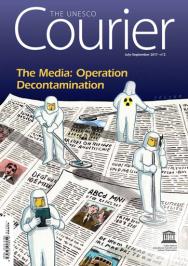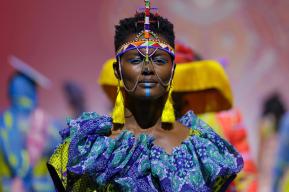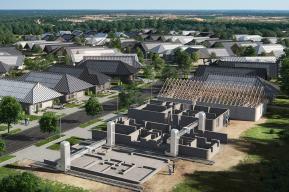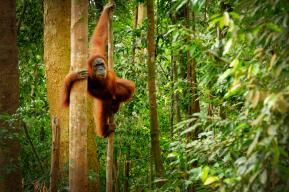文章
多亏网络有此灯塔
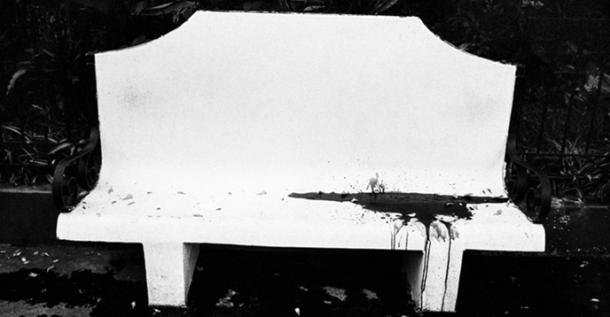
由于互联网和社交网络的渗透,谣言和假新闻开始大量充斥,新闻业正在经历一场全球性危机。然而,这些相同的空间和工具可以也应该被用来创造更好的新闻业,如萨尔瓦多网络先锋报纸《灯塔报》那样。此文是对《灯塔报》20年历史的回顾。
卡洛斯·达靼
我们创刊时或多或少是被迫的。1998年,萨尔瓦多刚刚结束长期内战,我们没有资深记者的指导,开始自行摸索。但是,我们都坚信,战后需要新的眼光和独立声音来刷新全国信息面貌——国家需要新的新闻业,而我们做到了。
《灯塔报》诞生于1998年5月,没有任何启动资金,这也是我们采取网络发行的原因。当时,萨尔瓦多仅有百分之二到百分之五的人口能够上网。为了生存,我们不得不求助于新技术,因为我们当时根本无法承受纸质报纸的运行成本。事实证明,选择互联网真的是一个非常幸运的决定,当时的我们远远没有想到互联网能对人类命运产生如此之大的影响。
起初,我们只是利用闲暇时间来筹办《灯塔报》。慢慢地,一些渴望在新媒体中锻炼自己的青年才俊也加入进来了。有好几年时间,我们的利润一直都是零,好在我们几乎也没什么支出——大家都是无偿工作,在各自的家中办公。这也培养了我们的独立精神。当新闻业开始重视互联网,读者开始在网络上浏览新闻,这时的我们已经在互联网上稳稳地占领了一席之地。
我们没有资深记者向我们传授新闻知识,但阅读和大量的自我批评弥补了这一缺憾。《灯塔报》的成熟得益于我们从自己的错误中吸取教训、不断反思和探讨以求改进。
得到认可
随着时间的推移,我们终于有了工资和真正的办公室。很多从一开始就加入我们的新闻专业的学生,如今已成了《灯塔报》的共同所有人和股东。《灯塔报》创刊近20年,已成为了拉丁美洲最受人们喜爱的高质量报纸之一。
我们的大部分活动集中在调查性新闻和叙事新闻上,主要有六大方向:暴力与有组织犯罪、腐败、战争罪、文化、贫穷与不平等、政治。我们认为,这些领域是最少得到报道但又最需要报道的,可以解释为何战争结束都20多年了,萨尔瓦多仍是世界上最暴力的国家之一,充斥着不平等和贫穷,并且很大程度上依靠生活在国外的200万萨尔瓦多人(占全国人口的三分之一)的现金汇款。
这个职业的矛盾之处就在于,我们的工作做得越好,能留住的朋友越少。我们被指责为叛国者、帮派保护者、私有财产的敌人或革命的敌人。在一个政治两极化的经历过内战的国家,右翼政府指责我们是左翼,左翼政府指责我们是右翼。我们收到来自毒枭、战犯、帮派头目、腐败政客、商人、军队和警察的不友好信息。好几次我们都不得不诉诸法律。
但是,不满信息有时也来自一些失望的读者,他们认为我们的工作不符合国家需要。几年前,我们发表一篇报道,揭露了一些年轻的累犯遭到警察冷血屠杀一事。很多读者都指责我们妨碍警察的工作,因为黑帮是萨尔瓦多暴力的主要来源。我们非常理解读者为什么有这样的反应,但我们做新闻绝不是为了满足读者愿望或安抚读者焦虑,因为民粹主义新闻是不负责任的、有害的、不道德的。
开放和传承
最近,我们试图将报道扩大到邻国洪都拉斯和危地马拉,他们在遭受和我们一样的暴力、腐败和社会衰败问题。虽然我们还没有建立系统性的覆盖体系,但我们的网络建设已初见成效。通过该网络,我们已经可以和邻国的一些记者进行联合调查。
经过20多年的发展,我们《灯塔报》的许多记者也出书、建电台、拍纪录片、办展览、开讲座。我们觉得有必要把我们的知识传承给新一代青年。
为此,我们每年五月都会召开中美洲新闻论坛,举办为期一周的研讨会、讲座和展览,期间将会邀请几十名来自拉丁美洲、美国和欧洲的专家进行发言。研讨会的内容更侧重于调查性新闻、广播新闻、摄影和专栏,并将由本地区和其他国家的最优秀记者牵头参加。100多名记者(主要来自中美洲)参加了今年的论坛。
中美洲新闻论坛是我们长期培训和讲座项目中的旗舰活动,旨在提高中美洲(本大陆最贫困地区)的新闻质量,并使我们的记者和遍布拉丁美洲的同事保持不断联系,通过这种方式,为建立地区网络,开启新的合作机会做出贡献,从而报道越来越多超越国界的问题。
By Carlos Dada
Some of us were forced into journalism − we had little choice. In 1998, El Salvador was emerging from a long civil war and we were feeling our way forward, with no towering figure to guide us. But we were convinced that the post-war period needed a revitalised press, with a fresh perspective and independent voices. The country deserved a new journalism, and we provided it.
El Faro [The Beacon] was started in May 1998, with absolutely no funding. That’s why we launched it on the internet, at a time when barely two per cent to five per cent of the Salvadorian population had access to it. Our existence depended on new technologies, because we could never have afforded the expense of running a printed newspaper. Opting for the internet turned out to be a very lucky decision for us, given that at the time, we were a million miles away from imagining the influence the web would have on the future of humanity.
In the beginning, we put El Faro together in our spare time. We were gradually joined by young talents who wanted to cut their teeth using this new media. For several years we made zero profit, but we also had virtually no expenses − each of us worked for free, from our homes. This also helped us to forge our independent spirit. When the industry started to take the internet seriously and readers started looking for news online, we were already firmly established on the web.
We compensated for the absence of mentors and teachers by reading, and with healthy doses of self-criticism. Our paper matured as we learned from our mistakes – we constantly reflected on, debated and discussed what we were doing.
Traitors to the nation
As the years went by, we eventually graduated to paid journalistic jobs and a proper office. Many of the journalism students who had worked with us from the start are now co-owners and shareholders of the newspaper. In our nearly twenty years of existence, we have become one of the most respected publications in Latin America.
Most of our efforts are concentrated on investigative and narrative reporting, covering six main themes: violence and organized crime, corruption, war crimes, culture, poverty and inequality, and politics. These are subjects which, in our view, are the least reported. But they are also central to any explanation of why, more than twenty years after the end of the war, El Salvador remains one of the most violent countries in the world, riddled with inequalities and poverty, and largely dependent on the two million Salvadorian expatriates – a third of the population – who send money back home.
The paradox in this profession is that the better you are at it, the fewer friends you keep. We have been called traitors to the nation, protectors of gangs, enemies of private property, and of revolution. In a country polarized between the two extremes that waged the civil war, right-wing governments accuse us of being left wing, and those on the left say we lean to the right. We have received some very unkind messages from drug dealers, war criminals, gang leaders, corrupt politicians, business executives, the army and the police. These threats have forced us to take legal action several times.
These messages of discontent also come from readers sometimes. A few years ago, we published an article that denounced the massacre of young delinquents, carried out in cold blood by the police. Several readers complained that we were hampering the work of the police, because gangs are the main source of violence in El Salvador. We understand these reactions very well, but there is no question of us changing our reporting to satisfy our readers’ aspirations, or alleviate their anxieties − populist journalism would be irresponsible, harmful and immoral.
A Central American forum
More recently, we have sought to extend our coverage to neighbouring countries − Honduras and Guatemala − which suffer similar levels of violence, corruption and social decay. Though we haven’t yet achieved the systematic coverage we would like, we have made good progress in setting up a network with journalists in the region, who can collaborate with us on investigative stories.
After two decades of growth, many journalists at El Faro have published books. We also do radio broadcasts, make documentaries and hold exhibitions and conferences. This is because we feel the need to pass on our knowledge to future generations.
In May every year, we hold the Central American Journalism Forum − a week of workshops, conferences and exhibitions with dozens of invited speakers from all over Latin America, the United States and Europe. The best journalists from the region and abroad lead workshops on investigative journalism, radio journalism, photography and reporting. More than a hundred journalists, mainly from Central America, took part in 2017.
The forum is the leading event in our permanent programme of training and conferences, aimed at improving the quality of journalism in Central America. This is the poorest region of the continent − putting our journalists in touch with their colleagues throughout Latin America opens up new possibilities for collaboration, to cover the issues that increasingly extend beyond the borders of our countries.
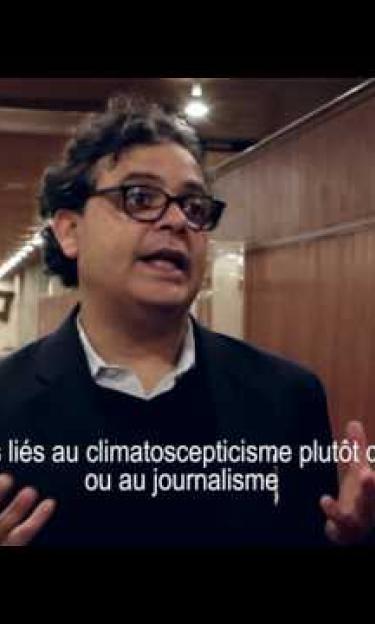
Carlos Dada
A Salvadorian journalist, Carlos Dada founded El Faro in 1998. He has covered events in Iraq, Venezuela, Mexico, Guatemala and Honduras. His articles are published in Latin America, USA, Bosnia and Spain. He was awarded the María Moors Cabot prize by Columbia University, New York, in 2011.
